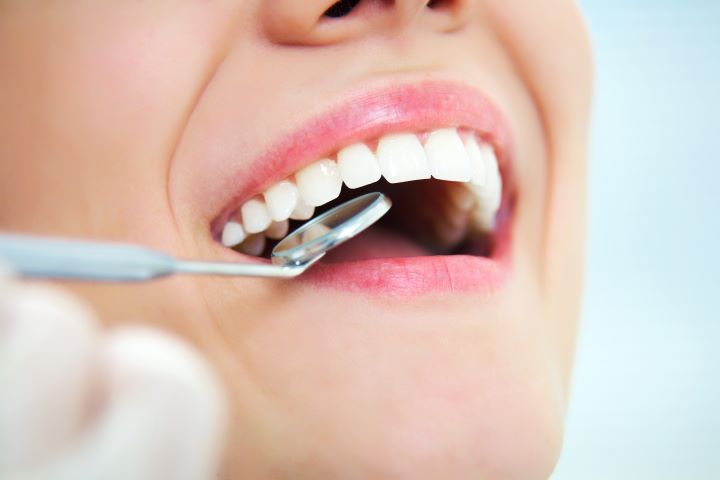The Surprising Health Benefits of Tongue Scraping
Did you know that a simple tool costing less than $10 could significantly improve your oral health, freshen your breath, and potentially boost your overall well-being? Welcome to the world of tongue scraping, an ancient Ayurvedic practice that's gaining traction in modern wellness circles. But what exactly is tongue scraping, and why are health experts increasingly recommending it?

The History and Science Behind Tongue Scraping
Tongue scraping, known as Jihwa Prakshalana in Ayurvedic medicine, has been practiced for thousands of years in various cultures. Ancient texts from India, China, and Arabia mention the use of tongue scrapers made from materials like gold, silver, copper, and even plant-based materials like neem twigs.
Modern science is now catching up to what traditional medicine has long understood. The tongue is a breeding ground for bacteria, with its rough surface providing an ideal environment for microorganisms to thrive. Research has shown that a single swipe of a tongue scraper can remove up to 30% more volatile sulfur compounds (VSCs) than brushing alone. These VSCs are the primary culprits behind bad breath, making tongue scraping an effective tool in the fight against halitosis.
Beyond Fresh Breath: Unexpected Health Benefits
While fresher breath is an obvious benefit, tongue scraping offers a range of other potential health advantages that might surprise you. For instance, by removing the buildup on your tongue, you’re not just cleaning your mouth—you’re potentially enhancing your overall digestive health.
Some studies suggest that tongue scraping could stimulate digestive enzymes and improve the body’s ability to recognize different tastes. This heightened taste sensitivity could lead to more mindful eating habits and potentially aid in weight management. Additionally, by reducing the bacterial load in your mouth, tongue scraping may help support your immune system, as the mouth is often the first line of defense against pathogens entering the body.
The Connection Between Oral Health and Systemic Wellness
The mouth-body connection is a growing area of research in the medical community. Poor oral health has been linked to various systemic conditions, including cardiovascular disease, diabetes, and respiratory infections. By maintaining better oral hygiene through practices like tongue scraping, you may be taking a proactive step in protecting your overall health.
Recent studies have also explored the potential link between oral bacteria and cognitive health. While research is still in its early stages, some scientists hypothesize that reducing the bacterial load in the mouth through practices like tongue scraping could potentially play a role in supporting brain health and reducing the risk of neurodegenerative diseases.
Integrating Tongue Scraping into Your Wellness Routine
Incorporating tongue scraping into your daily regimen is simple and time-efficient. Most experts recommend scraping your tongue once or twice a day, ideally in the morning before brushing your teeth. The process takes just a few seconds but can make a significant difference in your oral health.
When choosing a tongue scraper, opt for one made from stainless steel or copper, as these materials are durable and naturally antimicrobial. Plastic scrapers are also available but may not be as effective or eco-friendly. Gently scrape from the back of the tongue to the front, rinsing the scraper between each pass. It’s important to use light pressure to avoid irritating the tongue’s surface.
The Future of Oral Care: Personalized Approaches
As our understanding of the oral microbiome grows, so does the potential for personalized oral care routines. Some researchers are exploring the idea of tailored tongue scraping protocols based on an individual’s unique oral bacteria composition. This could lead to more targeted and effective oral hygiene practices in the future.
Additionally, the development of smart tongue scrapers equipped with sensors to analyze oral health markers is on the horizon. These devices could provide real-time feedback on your oral health status and alert you to potential issues before they become serious problems.
Tongue Scraping: Quick Tips for Optimal Results
-
Choose a U-shaped scraper for better coverage and comfort
-
Scrape your tongue before brushing to prevent redepositing bacteria
-
Replace your tongue scraper every 3-4 months
-
Avoid scraping if you have open sores or infections on your tongue
-
Consider using a copper tongue scraper for its natural antimicrobial properties
-
Combine tongue scraping with oil pulling for enhanced oral detoxification
-
Stay hydrated to help naturally cleanse your tongue throughout the day
In conclusion, tongue scraping is a simple yet powerful practice that offers a multitude of potential health benefits. From fresher breath to improved digestion and possibly even broader systemic health effects, this ancient technique is finding its place in modern wellness routines. As research continues to unveil the intricate connections between oral health and overall well-being, practices like tongue scraping may become increasingly important in our pursuit of holistic health. By adding this quick and easy step to your daily routine, you’re not just cleaning your tongue—you’re potentially investing in your long-term health and wellness.






